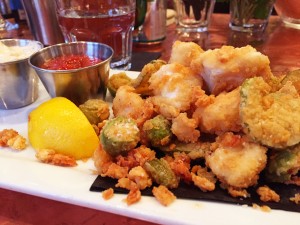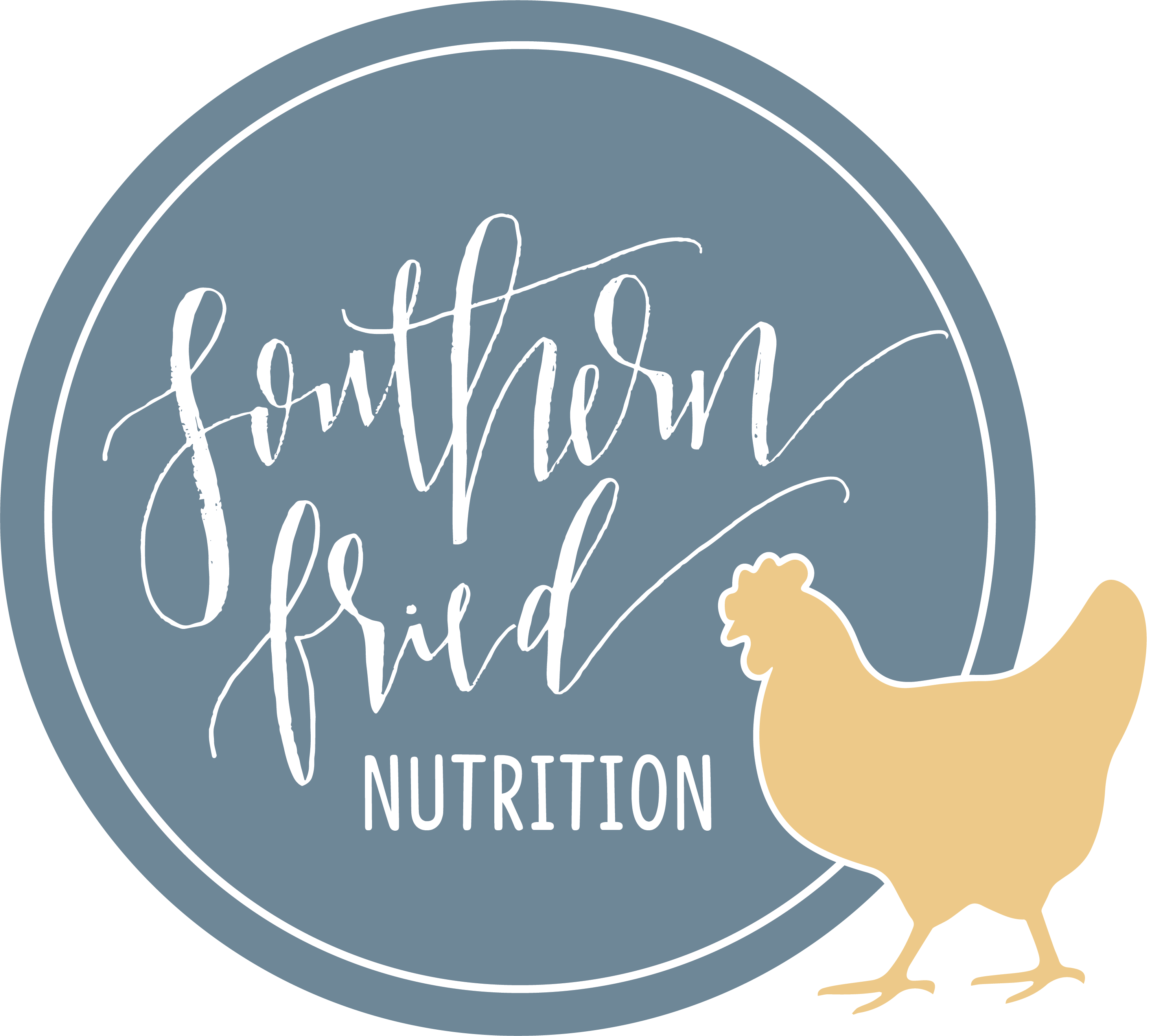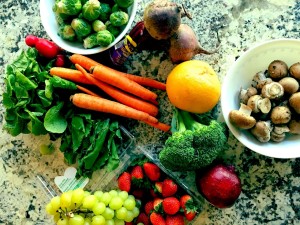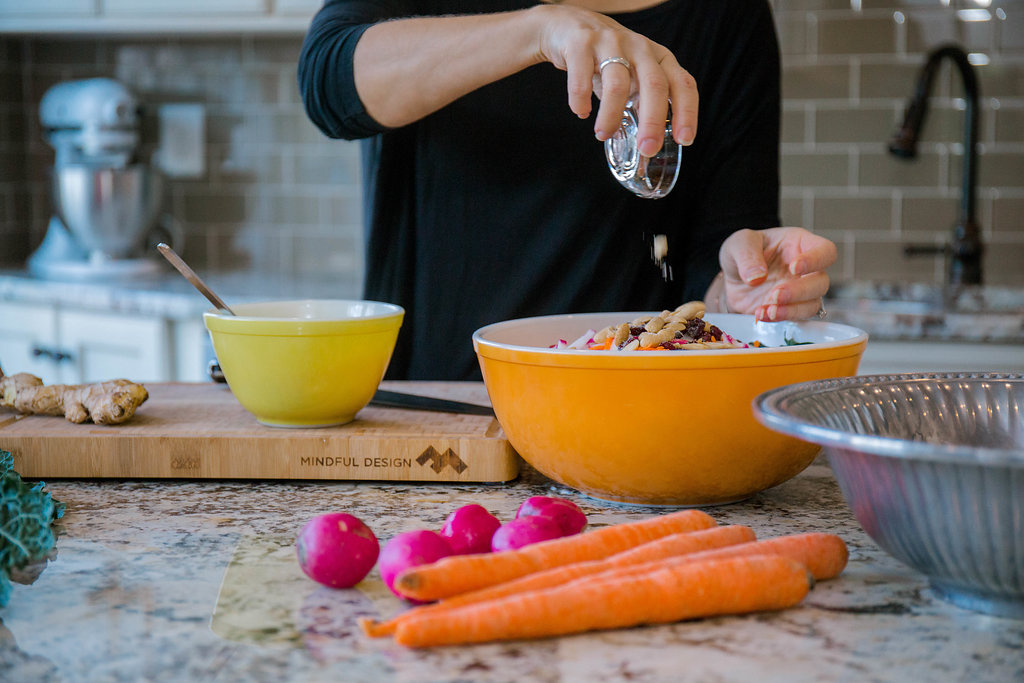There are so, so many diets out there today that will tell you that you should eat this, but not that. Avoid gluten, dairy, meat, peanuts, legumes, sugar, you name it. Often they use small bits of science and apply them incorrectly to make assumptions about how and what certain foods do in and to our bodies. Mostly malarkey. Sometimes they use fear-mongering, which aggravates me to no end. They may claim that our bodies are not made to eat this food or that our bodies can’t recognize that food. The fact is humans can eat almost anything and survive – and in some cases can thrive in spite of what seems to be an inadequate diet. We humans are programed to be omnivores; it’s one of the reasons that we are at the very top of the food chain.

Fried foods are high in calories and aren’t ideal for regular consumption, but even they can be enjoyed as a treat.
That said, we don’t have to eat everything. We get to make choices. We shouldn’t subsist on a diet of bacon and croissants (or fried okra and pickles), but we can eat them sometimes and still be perfectly healthy.
As for me, I am an omnivore. Sort of. There are foods that I don’t eat. I don’t eat pork. I also eat very little beef. I don’t have an issue with you eating them and they can absolutely be part of a healthy diet. I don’t care for the texture or flavor of either. To be honest, I became a quasi-vegetarian as a teenager (as the result of rabid anti-meat propaganda from PETA) and it stuck through my twenties. I never quite gave up seafood. Now, I eat chicken, eggs and turkey regularly too.
I also love dairy. I eat cheese pretty much every day. I make my own yogurt whenever I have the time. We enjoy real, delicious, (mostly) full-fat cheese, milk, yogurt, and kefir. These foods provide calcium, vitamin D, protein, probiotics, and other minerals our bodies need. Avoiding them is unnecessary because we have no sensitivities, intolerances, or allergies and eating them provides a variety of fantastic health benefits.
I don’t avoid sugar completely. I have a powerful sweet tooth! Cookies, ice cream, and chocolate indulgences regularly make it onto my plate. The secret? PORTION CONTROL. I can eat anything I want. But I can’t eat any amount of anything I want anytime I want and still have the health that I want. I rarely drink my sugar (but do enjoy a shake, frappe, or sweet tea on occasion). Sugar isn’t inherently evil. Too much sugar (just like too much alcohol, meat, and even water) can harm our health, increasing our risk for chronic disease and tooth decay. WHO and American Heart Association says you should limit your intake of added sugar to around 6-8 teaspoons per day (that’s not much, people) and 4 grams is equal to about 1 teaspoon. Read labels, be smart. But a little sugar never hurt anyone.
On the whole, I primarily eat a plant-based diet. I eat all kinds plants (except lima beans, but that’s totally preference). Whole grains, legumes, peanuts, tree nuts, cruciferous vegetables, those from the nightshade family, and much more. I do not avoid any plant-based food based on the fact that it may contain one or more “anti-nutrient”. That’s just silly. We eat a varied diet specifically so that we can get a variety of vitamins, minerals and nutrients from our food. Fruits and vegetables, nuts and seeds are packed with antioxidants, fiber, good fats, and vitamins that our bodies need. The more we eat, the better for our health.
This is the deal. Healthy eating for most people is not overly complex. There are specific things you can and should do to help improve your health through your eating behaviors. But if it sounds wacky, too good to be true, makes it hard to enjoy food with friends and family, or makes food prep impossible for you to do within your lifestyle, don’t go there. Step back and reconsider what you’re trying to accomplish. A registered dietitian nutritionist can help you make sense of the science, the hype, and help create a plan that works for your specific needs. If I can help let me know. I don’t always agree with Michael Pollan, but he got some things right. His brief instructions: Eat food. Not too much. Mostly plants. pretty much hit the nail on the head for me. What do you think?



